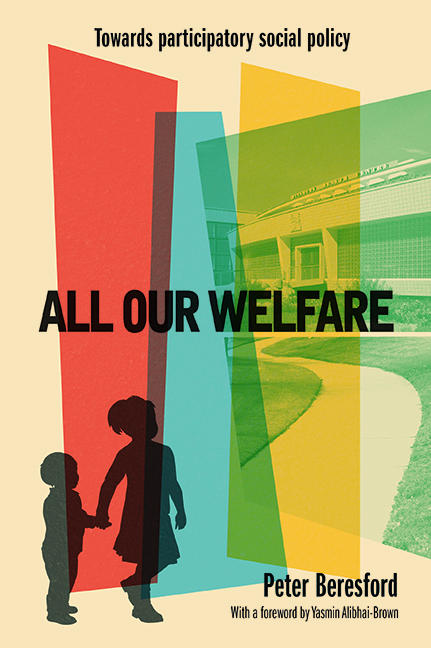Book contents
- Frontmatter
- Contents
- List of photographs and sources
- Foreword
- Dedication
- Acknowledgements
- Introduction Owning not othering our welfare
- Part One The legacy of the past
- Part Two The way to the future
- Afterword The future: a different way forward?
- Appendix One The family
- Appendix Two Research projects and related publications
- References
- Index
Three - The origins of the welfare state
Published online by Cambridge University Press: 01 September 2022
- Frontmatter
- Contents
- List of photographs and sources
- Foreword
- Dedication
- Acknowledgements
- Introduction Owning not othering our welfare
- Part One The legacy of the past
- Part Two The way to the future
- Afterword The future: a different way forward?
- Appendix One The family
- Appendix Two Research projects and related publications
- References
- Index
Summary
Man becomes great exactly in the degree in which he works for the welfare of his fellow-men.
(Mahatma Gandhi)The more you can increase fear of drugs and crime, welfare mothers, immigrants and aliens, the more you control all the people.
(Noam Chomsky)There is little that is not contentious about the ‘welfare state’. It was a term that Sir William Beveridge, the individual most closely associated with it in Britain, apparently disliked – since as critics comment – he was anxious to emphasise the limits to state responsibility (Mitton, 2012, 36; Collins, 2013, 28). While in the UK the ‘welfare state’ has come to be seen as a native concept, in fact it was a term that was used earlier in Germany in the 1920s (Gladstone, 2008, 24). Uruguay was described as ‘South America’s first welfare state’ as a result of reforms made in the first third of the twentieth century (Pendle, 1952). As time has passed, there has also been an increasing tendency to see the origins of the British welfare state as lying further and further in the past. In some cases this has resulted in the reframing of punitive nineteenth-century policy in ‘welfare’ terms that its recipients would doubtless find very difficult to comprehend (Gladstone, 2008, 24).
Frequently now, the Liberal government reforms of 1906–11 are taken as a key starting point (Alcock, 2008; Baldock et al, 2012; Whiteside, 2012, 121). Certainly these extended the role of the state in social policy. But how helpful it is to make a linear connection with the post-war welfare state, is open to serious question. Lavinia Mitton, social policy academic, has argued that the welfare state was ‘constrained by being based on an existing haphazard collection of measures’ and that: ‘for this reason there is ongoing debate about the extent to which the post-Second World War structures of British welfare were laid down in the reforms introduced prior to 1939 or whether they represented a distinct break with the past’ (Mitton, 2012, 33).
Every reform, however radical, has to build on what has gone before, however and will be more or less affected by it. This argument would equally underplay the radicalism and innovation of the utilitarian New Poor Law. What distinguishes the post-war welfare state were its principles. As Mitton herself acknowledges, few if any of these key principles, underpinned those earlier reforms (Mitton, 2012, 32–3).
- Type
- Chapter
- Information
- All our WelfareTowards Participatory Social Policy, pp. 49 - 64Publisher: Bristol University PressPrint publication year: 2016



